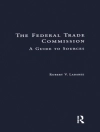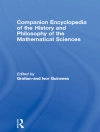Does perception provide us with direct and unmediated access to the world around us? The so-called ‘argument from illusion ‘ has traditionally been supposed to show otherwise: from the subject’s point of view, perceptual illusions are often indistinguishable from veridical perceptions; hence, perceptual experience, as such, cannot provide us with knowledge of the world, but only with knowledge of how things appear to us. Disjunctive accounts of perceptual experience, first proposed by John Mc Dowell and Paul Snowdon in the early 1980s and at the centre of current debates in the philosophy of perception, have been proposed to block this argument. According to the traditional view, a case of perception and a subjectively indistinguishable illusion or hallucination can exemplify what is fundamentally the same kind of mental state even though they differ in how they relate to the non-mental environment. In contrast, according to the disjunctive account, the concept of perceptual experience should be seen as essentially disjunctive, encompassing (at least) two distinct kinds of mental states, namely genuinely world-involving perceptions and mere appearances. This book presents seven recent essays on disjunctivism first published in two special issues of Philosophical Explorations: An International Journal for the Philosophy of Mind and Action.
Marcus Willaschek
Disjunctivism [PDF ebook]
Disjunctive Accounts in Epistemology and in the Philosophy of Perception
Disjunctivism [PDF ebook]
Disjunctive Accounts in Epistemology and in the Philosophy of Perception
购买此电子书可免费获赠一本!
语言 英语 ● 格式 PDF ● 网页 176 ● ISBN 9781135739607 ● 编辑 Marcus Willaschek ● 出版者 Taylor and Francis ● 发布时间 2013 ● 下载 3 时 ● 货币 EUR ● ID 7117051 ● 复制保护 Adobe DRM
需要具备DRM功能的电子书阅读器












